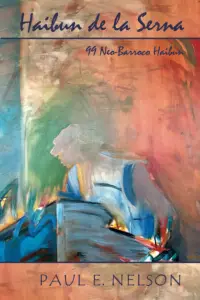I am very pleased to announce my reading of Haibun de la Serna, the latest release from Paul E. Nelson and an incredible addition to his canon (one that, it is astounding to say, has been over a decade in the making).
My GoodReads review of my friend’s great new work dives a little deeper:
Nelson’s latest book of poetry might be his most formidable and complex yet. Based on the works and the neo-barroco poetic style from poets Jose Kozer and Ramon de la Serna, Nelson actively and consciousness investigates the swirling worlds globally and in his Cascadian stomping grounds. The works were originally written between 2010 and 2013, and yet the writing feels incredible, fresh, and present. Nelson has done a fantastic job supporting his works with a complement of end notes, that provide some insight into the vast libraries of knowledge Nelson imbues into his works. This worldliness is fulfilling and, like his Zen predecessors and even the modernists, captivating in the layers upon layers that can be disassembled to get to the poet’s duende core. Yet the flurry of Nelson’s style (which can be found in his other works, especially his American Sentences), shows that even the most matter-of-fact phrase and off-the-cuff remark, from the humorous to the cathartic (and everything in between) reveals the poet operating at a higher level of concentration and awareness. These 99 poems are bold, chiseled poems that are exquisitely crafted, cunning and uncanny from cover to cover. They will ring your bells and quake your foundations, time and time again across the book’s 121 pages.
You can learn more about Haibun de la Serna on Paul’s website, and you can buy the book (which you should) on Amazon here.
